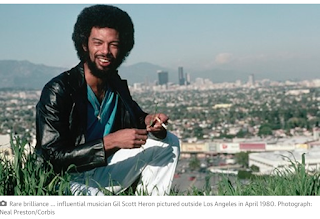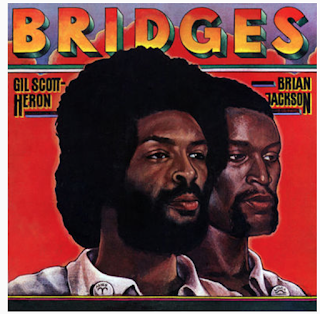Audre Lorde was an amazing poet, novelist, fighter for the oppressed and marginalized, women, lesbians, and more. From the Poetry Foundation: "A self-described “black, lesbian, mother, warrior, poet,” Audre Lorde dedicated both her life and her creative talent to confronting and addressing the injustices of racism, sexism, and homophobia. Her poetry, and “indeed all of her writing,” according to contributor Joan Martin in Black Women Writers (1950-1980): A Critical Evaluation, “rings with passion, sincerity, perception, and depth of feeling.” Concerned with modern society’s tendency to categorize groups of people, Lorde fought the marginalization of such categories as “lesbian” and “black woman,” thereby empowering her readers to react to the prejudice in their own lives. While the widespread critical acclaim bestowed upon Lorde for dealing with lesbian topics made her a target of those opposed to her radical agenda, she continued, undaunted, to express her individuality, refusing to be silenced. As she told interviewer Charles H. Rowell in Callaloo: “My sexuality is part and parcel of who I am, and my poetry comes from the intersection of me and my worlds… [White, arch-conservative senator] Jesse Helms’s objection to my work is not about obscenity…or even about sex. It is about revolution and change.” Fighting a battle with cancer that she documented in her highly acclaimed Cancer Journals (1980), Lorde died of the illness in 1992."
Audre Lord was also a public school librarian - which is wonderful!! She was born February 18, 1934 to parents originally from Grenada in New York City. "The youngest of three sisters, she was raised in Manhattan and attended Catholic school. While she was still in high school, her first poem appeared in Seventeen magazine. Lorde received her BA from Hunter College and an MLS from Columbia University. She served as a librarian in New York public schools from 1961 through 1968. In 1962, Lorde married Edward Rollins. They had two children, Elizabeth and Jonathon, before divorcing in 1970."
"Audre Lorde was professor of English at John Jay College of criminal justice and Hunter College. She was the poet laureate of New York from 1991-1992. She died of breast cancer in 1992. The Collected Poems of Audre Lorde was published in 1997."
"The third and youngest daughter of Linda Gertrude Belmar and Frederic Byron Lorde, Audre Geraldine was born tongue-tied and so nearsighted that she was considered legally blind. She grew up in Harlem during the Depression, hearing her mother's stories about the West Indies. She learned to talk while she learned to read, at the age of four. Her mother taught her to write during this time and Audre "did not like the tail of the Y hanging down below the line in Audrey" and so would omit it; she "love[d] the evenness of AUDRELORDE" (Zami, 1982). This early incident reveals the importance of naming and self-definition to Lorde, themes that she develops in her later writings."
There is so much more to say about the beautiful Ms. Lorde but I think I'd rather quote her poetry. But also that she wrote about her cancer experience (and unfortunately died of breast cancer).
The difference between poetry and rhetoric
is being ready to kill
yourself
instead of your children.
I am trapped on a desert of raw gunshot wounds
and a dead child dragging his shattered black
face off the edge of my sleep
blood from his punctured cheeks and shoulders
is the only liquid for miles
and my stomach
churns at the imagined taste while
my mouth splits into dry lips
without loyalty or reason
thirsting for the wetness of his blood
as it sinks into the whiteness
of the desert where I am lost
without imagery or magic
trying to make power out of hatred and destruction
trying to heal my dying son with kisses
only the sun will bleach his bones quicker.
A policeman who shot down a ten year old in Queens
stood over the boy with his cop shoes in childish blood
and a voice said “Die you little motherfucker” and
there are tapes to prove it. At his trial
this policeman said in his own defense
“I didn't notice the size nor nothing else
only the color”. And
there are tapes to prove that, too.
Today that 37 year old white man
with 13 years of police forcing
was set free
by eleven white men who said they were satisfied
justice had been done
and one Black Woman who said
“They convinced me” meaning
they had dragged her 4'10'' black Woman's frame
over the hot coals
of four centuries of white male approval
until she let go
the first real power she ever had
and lined her own womb with cement
to make a graveyard for our children.
I have not been able to touch the destruction
within me.
But unless I learn to use
the difference between poetry and rhetoric
my power too will run corrupt as poisonous mold
or lie limp and useless as an unconnected wire
and one day I will take my teenaged plug
and connect it to the nearest socket
raping an 85 year old white woman
who is somebody's mother
and as I beat her senseless and set a torch to her bed
a greek chorus will be singing in 3/4 time
“Poor thing. She never hurt a soul. What beasts they are.”
is being ready to kill
yourself
instead of your children.
I am trapped on a desert of raw gunshot wounds
and a dead child dragging his shattered black
face off the edge of my sleep
blood from his punctured cheeks and shoulders
is the only liquid for miles
and my stomach
churns at the imagined taste while
my mouth splits into dry lips
without loyalty or reason
thirsting for the wetness of his blood
as it sinks into the whiteness
of the desert where I am lost
without imagery or magic
trying to make power out of hatred and destruction
trying to heal my dying son with kisses
only the sun will bleach his bones quicker.
A policeman who shot down a ten year old in Queens
stood over the boy with his cop shoes in childish blood
and a voice said “Die you little motherfucker” and
there are tapes to prove it. At his trial
this policeman said in his own defense
“I didn't notice the size nor nothing else
only the color”. And
there are tapes to prove that, too.
Today that 37 year old white man
with 13 years of police forcing
was set free
by eleven white men who said they were satisfied
justice had been done
and one Black Woman who said
“They convinced me” meaning
they had dragged her 4'10'' black Woman's frame
over the hot coals
of four centuries of white male approval
until she let go
the first real power she ever had
and lined her own womb with cement
to make a graveyard for our children.
I have not been able to touch the destruction
within me.
But unless I learn to use
the difference between poetry and rhetoric
my power too will run corrupt as poisonous mold
or lie limp and useless as an unconnected wire
and one day I will take my teenaged plug
and connect it to the nearest socket
raping an 85 year old white woman
who is somebody's mother
and as I beat her senseless and set a torch to her bed
a greek chorus will be singing in 3/4 time
“Poor thing. She never hurt a soul. What beasts they are.”
"As a noted feminist, Lorde painstakingly struggled against the limitations of the label, insisting that feminism is important to all factions of African American life. As a perceived outsider on many fronts, Lorde believed that bringing together divergent groups can only strengthen and heal a torn society: "When I say I am a Black feminist, I mean I recognize that my power as well as my primary oppressions come as a result of my Blackness as well as my womanness, and therefore my struggles on both these fronts are inseparable." These views are explored further in Sister Outsider: Essays and Speeches (1984), published by Crossing Press. This nonfiction collection explores the fear and hatred existing between African American men and women, feminists, or lesbians and the challenge between African American women and white women to find common ground. Another crucial area of emphasis presented in Sister Outsider is the isolation found among African American women and their subsequent rejection of each other’s trust, friendship, and gifts. (BK)"
"Before she died, Lorde in an African naming ceremony took the name Gambda Adisa, meaning Warrior: She Who Makes Her Meaning Known. (AR)"
Poetry Foundation - http://www.poetryfoundation.org/bio/audre-lorde
Academy of American Poets - https://www.poets.org/poetsorg/poet/audre-lorde
Modern American Poetry - http://www.english.illinois.edu/maps/poets/g_l/lorde/life.htm
The Audre Lorde Project - http://alp.org/about/audre
Speech at NYU - The Master's Tools Will Never Dismantle the Master's House - http://collectiveliberation.org/wp-content/uploads/2013/01/Lorde_The_Masters_Tools.pdf
Biography.com - http://www.biography.com/people/audre-lorde-214108
Audre Lorde Quotes - http://www.brainyquote.com/quotes/authors/a/audre_lorde.html
Audre Lorde Poems - http://www.poemhunter.com/audre-lorde-2/










